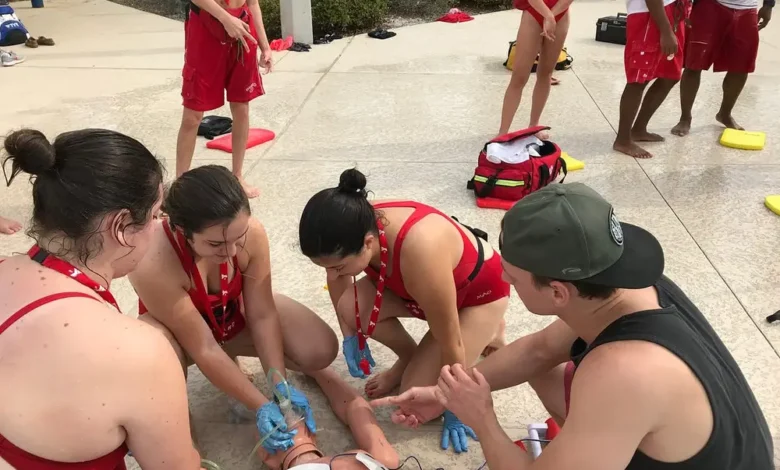
Lifeguard training plays a pivotal role in maintaining safety in aquatic environments. From community pools and waterparks to beaches and lakes, the importance of well-trained lifeguards cannot be overstated. Lifeguard training goes far beyond the physical act of rescuing people from drowning; it encompasses a wide range of skills that prepare individuals to prevent accidents, respond to emergencies, and promote water safety. The impact of such training is felt across several areas, including safety, community well-being, and the lifeguard’s personal and professional development.
Enhanced Water Safety
The primary goal of lifeguard training is to enhance water safety. Drowning is one of the leading causes of accidental deaths worldwide, especially among children. A properly trained lifeguard is the first line of defense against these tragic incidents. Lifeguards are trained to identify potential hazards and risks in aquatic environments, from rough waves and strong currents at beaches to overcrowded pools.
In addition to rescuing individuals in distress, lifeguards use their training to enforce safety rules, minimizing the likelihood of accidents. Through constant vigilance and quick intervention, lifeguards can stop unsafe behaviors such as running near the pool, diving in shallow areas, or neglecting life jackets, particularly for inexperienced swimmers. This preventative aspect is crucial in reducing accidents and ensuring that aquatic facilities remain safe for everyone.
Emergency Response Preparedness
Lifeguard training equips individuals with essential skills for responding to a wide range of emergencies, including CPR, first aid, and the use of automated external defibrillators (AEDs). These skills are not limited to water-related incidents but are transferable to other emergency situations in daily life.
The ability to perform CPR or provide first aid during a medical emergency can make the difference between life and death. Lifeguards are often the first responders during emergencies, and their quick thinking and decisive actions can stabilize victims until professional medical help arrives. In many cases, this can mean the difference between a full recovery and permanent injury or fatality.
Moreover, lifeguards are trained to remain calm under pressure. This composure is essential during emergencies, as it helps guide panicked or injured individuals to safety and reassures bystanders. The mental and emotional resilience gained through lifeguard training prepares individuals for high-stress situations, ensuring they act confidently and efficiently.
Building Community Trust
Lifeguards play a key role in fostering trust within communities. Parents, children, and swimmers of all ages feel more secure when they know a trained professional is watching over them. The presence of a certified lifeguard gives people the confidence to enjoy aquatic environments, knowing that someone is there to prevent accidents and respond if anything goes wrong.
For many communities, lifeguard training programs also provide valuable job opportunities for young adults and teenagers. By participating in these programs, individuals not only gain essential lifesaving skills but also develop a strong sense of responsibility, leadership, and teamwork. These qualities carry over into other areas of life, contributing to personal growth and development.
Lifeguards as Educators
Lifeguards do more than just respond to emergencies; they also play a vital role in educating the public about water safety. Lifeguards trained through organizations like the American Lifeguard Association or American Lifeguard Event are taught to engage with the community and promote safe swimming practices. Whether it’s teaching children about the dangers of deep water, advising parents on proper supervision, or offering tips on how to swim safely in open water, lifeguards are key advocates for water safety education.
Professional Development and Lifelong Skills
For those who undergo lifeguard training, the benefits extend far beyond the poolside. Lifeguard training imparts valuable life skills, such as communication, problem-solving, and conflict resolution. These skills are transferable to any career or life situation, making lifeguard training a valuable investment in personal development.
Professionally, becoming a lifeguard can open doors to other careers in the aquatic industry, such as pool management, swim instruction, or even advanced roles in emergency response. Lifeguards can also pursue ongoing training and certifications, such as lifeguard recertification or specialized rescue techniques, ensuring their skills remain sharp and up-to-date.
Conclusion
In conclusion, the impact of lifeguard training is far-reaching, touching on aspects of safety, emergency response, community trust, and personal development. Lifeguards save lives, prevent accidents, and act as role models in their communities. The training they undergo prepares them to protect others and empowers them with skills that last a lifetime.



